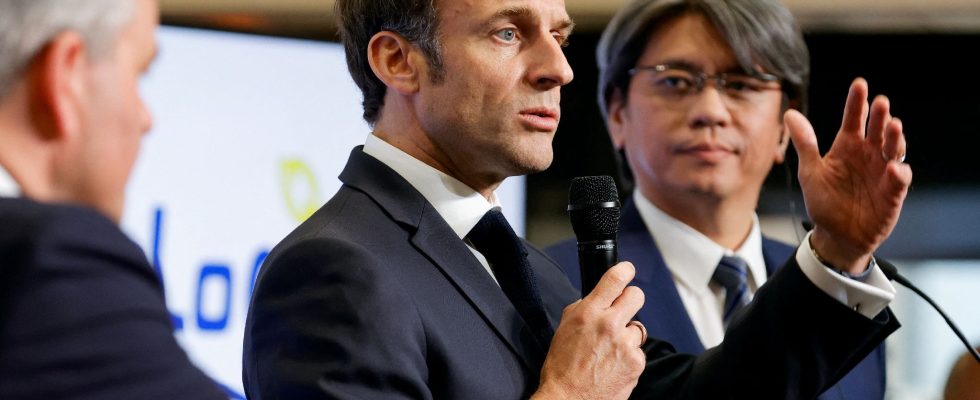Is France reindustrialising as Emmanuel Macron and Bruno Lemaire claim? The diagnosis is rushed but, clearly, something positive is happening in France. It was desired enough to be pointed out. Everyone knows that deindustrialization was particularly violent in the country, as much as in the United Kingdom. The share of industry in GDP has been halved in forty years, which has had negative consequences on the level of GDP itself. Indeed, from a certain level, the lack of industry is a problem for the economy as a whole. The formula is from Nicolas Sarkozy and it has the merit of being effective: services are very good, but they have to be at the service of something. It should be added that industry represents three-quarters of research and development, and three-quarters of exports.
Industrial activity also has the merit of being geographically distributed. In general, the services are in the metropolises, and the factories in the more rural territories because they need space. This remark is crucial if we care not only about macroeconomics but also about regional planning and social cohesion. The main sign of France’s reindustrialisation lies in its attractiveness. Present in Versailles during the Choose France summit, I was able to note how positive the discourse of foreign entrepreneurs on France had become. Our president is seen as one of the most “pro-business” in the world, while foreign leaders still have Brexit on their minds and are worried about a German chancellor who has not always pragmatic environmentalists in his government. Moreover, our attractiveness figures are encouraging.
According to Ernst & Young’s annual barometer, 1,725 projects (new factories or extensions) were counted in 2022, an increase of 7% compared to 2021. These new projects have made it possible to create or maintain 58,810 jobs, a record increase of 31% over the previous year. These are, of course, only projects, but it is a positive signal.
Too early to claim victory
In this area, France is the European leader even if our projects are, on average, smaller and create relatively few jobs compared to Germany or the United Kingdom. The arrival of the Taiwanese ProLogium in Dunkirk is particularly happy news. This 5 billion euro project should generate 3,000 jobs. ProLogium is going to develop a solid-state battery technology there that will increase energy density and reduce recharging time. It is also an excellent initiative for the Hauts-de-France region, which has established itself under the hyperactive presidency of Xavier Bertrand as the showcase for French reindustrialisation. The region will host the four gigafactories from France: that of ACC, owned by Stellantis, TotalEnergies and Mercedes, in Douvrin; that of Envision, in Douai, on the Renault site; and that of Verkor, which counts Alpine among its customers, also in Dunkirk.
However, can we already speak of reindustrialisation? Honestly, it’s too early to tell. Admittedly, French industrial production is going up. But taking a step back in time, we see that the movement is tiny. Despite this improvement, our industrial production is at the same level as in 1997. The exact expression would therefore be “beginning of potential reindustrialisation”. This may seem disappointing but after the industrial carnage of the last twenty years, it is encouraging.
This also shows that the supply policy implemented since the 2012 Gallois report and amplified over the past six years, made up of more flexible labor markets, lower taxes on capital and companies, is the right one. Let’s fight for it to be made permanent over time, because the fight for industrial attractiveness will never be definitively won, and let’s complete it by finally launching the simplification project. In France, it takes about a year and a half of procedures to set up a factory. Our normative passion would be able to abort a reindustrialization that we ardently desire.
* Nicolas Bouzou is an economist and essayist
